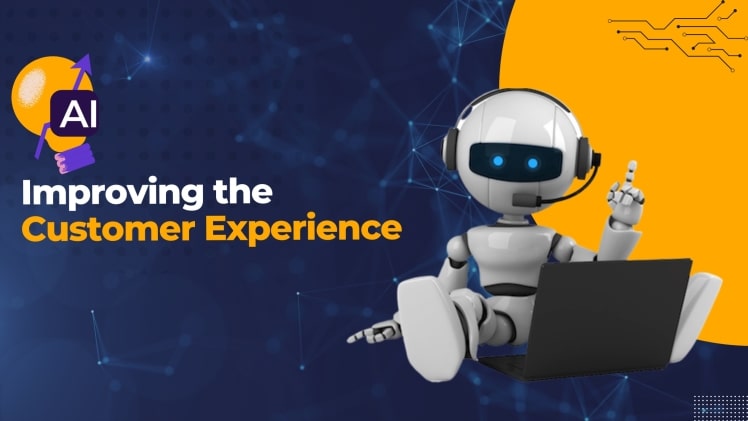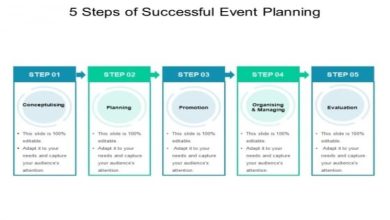The role of AI in personalizing customer experiences

Artificial intelligence (AI) refers to the simulation of human intelligence in machines that are programmed to think and act like humans. These intelligent machines can be designed to perform tasks that normally require human intelligence, such as learning, problem-solving, decision-making, and more.
Read more: Rajkotupdates.news Apple iphone Exports From India Doubled Between April and August
There are various forms of artificial intelligence, including narrow or weak AI, which is designed to perform specific tasks, and general or strong AI, which is designed to perform any intellectual task that a human can. AI has the potential to revolutionize many fields, including healthcare, education, transportation, and more.
The importance of personalization in customer experiences
Personalization is the process of customizing the customer experience to meet the individual needs and preferences of each customer. Personalization can help businesses stand out and provide a more meaningful, relevant, and enjoyable experience for their customers.
Some benefits of personalization in customer experiences include increased customer satisfaction, improved customer retention, increased revenue, and improved efficiency. Personalization can help businesses build stronger, more meaningful connections with their customers, which can lead to increased customer satisfaction and loyalty.
It can also help businesses retain customers by making them feel valued and understood. Personalization can help businesses increase revenue by improving the effectiveness of their marketing efforts and targeting marketing messages to specific customer segments.
Additionally, it can help businesses save time and resources by streamlining the customer experience and reducing the need for manual intervention. Personalization is a crucial element of customer experience and can help businesses build stronger relationships with their customers, improve customer retention, and drive revenue.
The potential for AI to enhance personalization efforts
Artificial intelligence (AI) has the potential to significantly enhance personalization efforts by providing businesses with the ability to analyze large amounts of data and make more accurate, personalized recommendations for customers.
One way that AI can enhance personalization efforts is by providing personalized recommendations for products or services to customers based on their past purchases, browsing history, and other data points. AI can also be used to analyze customer data and segment customers into different groups based on their characteristics, behaviors, and preferences, allowing businesses to create and target personalized marketing campaigns to different customer segments.
In addition, AI chatbots and virtual assistants can provide personalized customer support by using natural language processing (NLP) to understand and respond to customer inquiries in a more human-like manner, resulting in a more efficient and personalized customer support experience.
AI has the potential to greatly enhance personalization efforts by providing businesses with the ability to analyze and understand customer data at scale and make more accurate, personalized recommendations and experiences for their customers. visit for more about: Jio Rockers Kannada
Gathering and analyzing customer data
Gathering and analyzing customer data is an important part of personalization efforts because it allows businesses to understand their customers’ needs, preferences, and behaviors. This information can then be used to tailor products, services, and experiences to better meet the needs and preferences of individual customers.
There are various ways that businesses can gather customer data, including surveys and questionnaires, online tracking tools, social media platforms, and customer interactions. Surveys and questionnaires can be used to gather detailed information about customers’ needs, preferences, and behaviors, and can be conducted online or in-person.
Online tracking tools, such as web analytics and cookies, can be used to gather data on customer behaviors and preferences when they visit a website or use an online service. Social media platforms can be a rich source of data on customer preferences and behaviors, and businesses can use social media analytics tools to track customer interactions and gather data on demographics and interests.
Customer interactions, such as phone calls, emails, and in-person interactions, can also provide valuable data on customer preferences and behaviors. Once the data has been gathered, it can be analyzed to identify patterns and trends, and to better understand the needs and preferences of different customer segments. This information can then be used to tailor products, services, and experiences to better meet the needs of individual customers.
Predictive analytics and personalized recommendations
Predictive analytics is the use of data, statistical algorithms, and machine learning techniques to identify the likelihood of future outcomes based on historical data. Predictive analytics can be used to make personalized recommendations to customers by analyzing their past behaviors and using that data to predict what they might be interested in purchasing in the future.
For example, a retail company might use predictive analytics to analyze a customer’s past purchases and browsing history, and use that information to make personalized product recommendations. A streaming service might use predictive analytics to recommend movies or TV shows to a customer based on their past viewing history.
Predictive analytics can be particularly useful for making personalized recommendations because it allows businesses to identify patterns and trends in customer data and use that information to anticipate the needs and preferences of individual customers. This can help businesses provide a more relevant and tailored customer experience, which can lead to increased customer satisfaction and loyalty.
Personalized communication and marketing campaigns
Personalized communication and marketing campaigns are tailored to the individual needs and preferences of each customer and are designed to provide a more relevant and engaging experience for the customer.
Businesses can use personalized emails that are targeted to specific customer segments based on factors such as demographics, interests, and past purchases. Personalized landing pages can also be created for customers that are tailored to their specific needs and preferences.
Personalized ads can be created using customer data to target specific customer segments. Personalized social media content can be created by the professional ghostwriters for different customer segments using customer data.
Personalized communication and marketing campaigns can help businesses create a more relevant and engaging experience for their customers, which can lead to increased customer satisfaction and loyalty.
Case studies and success stories
Case studies and success stories are detailed accounts of how a product, service, or solution has been used to solve a real-world problem or meet a specific business need. These types of stories are often used to showcase the benefits and value of a particular product or solution, and can be a powerful marketing tool for businesses.
Case studies and success stories can be particularly effective because they provide concrete examples of how a product or solution has been used to solve a real problem, and they can help potential customers envision how they might be able to use the product or solution in their own business.
Some examples of how case studies and success stories might be used include:
- Marketing materials: Case studies and success stories can be included in marketing materials such as brochures, website content, and sales presentations to showcase the benefits and value of a product or solution.
- Testimonials: Customers who have had success using a product or solution can provide testimonials that can be included in marketing materials and on a company’s website.
- Social media: Case studies and success stories can be shared on social media to showcase the benefits and value of a product or solution to a wider audience.
Case studies and success stories can be a powerful marketing tool for businesses, as they provide concrete examples of how a product or solution has been used to solve real-world problems and can help potential customers envision how they might be able to use the product or solution in their own business.
Challenges and limitations of using AI to personalize customer experiences
There are several challenges and limitations to using artificial intelligence (AI) to personalize customer experiences:
- Data quality: One challenge is ensuring that the data used to train AI models is accurate and relevant. Poor quality data can lead to inaccurate or biased results, which can negatively impact the customer experience.
- Data privacy: Another challenge is protecting customer data privacy. As more customer data is collected and used to personalize the customer experience, it is important to ensure that this data is collected and used in a way that is compliant with data privacy regulations and respects the privacy of customers.
- Ethical concerns: There are also ethical concerns surrounding the use of AI to personalize the customer experience. For example, AI algorithms that make personalized recommendations based on customer data may be biased against certain groups of customers, or may perpetuate negative stereotypes.
- Customer acceptance: Another challenge is ensuring that customers are accepting of the use of AI to personalize their experiences. Some customers may be hesitant to share their data with businesses, or may be uncomfortable with the idea of being targeted with personalized recommendations based on their data.
- Limited capabilities: AI is still limited in its capabilities and may not always be able to provide the level of personalization that customers expect. For example, AI algorithms may struggle to understand and respond to complex or unusual customer requests.
While AI has the potential to greatly enhance personalization efforts, there are also challenges and limitations to consider when using AI to personalize customer experiences.
Conclusion
Personalization is the process of customizing the customer experience to meet the individual needs and preferences of each customer. Personalization can help businesses stand out and provide a more meaningful, relevant, and enjoyable experience for their customers, which can lead to increased customer satisfaction and loyalty.
Artificial intelligence (AI) has the potential to significantly enhance personalization efforts by providing businesses with the ability to analyze large amounts of data and make more accurate, personalized recommendations for customers.
However, there are also challenges and limitations to using AI to personalize customer experiences, including issues around data quality, data privacy, ethical concerns, customer acceptance, and the limited capabilities of AI algorithms.
Personalization is a crucial element of customer experience and can help businesses build stronger relationships with their customers, improve customer retention, and drive revenue.



